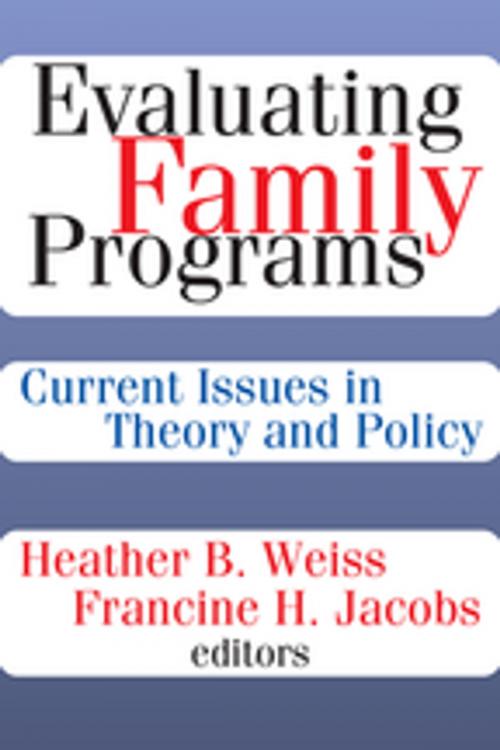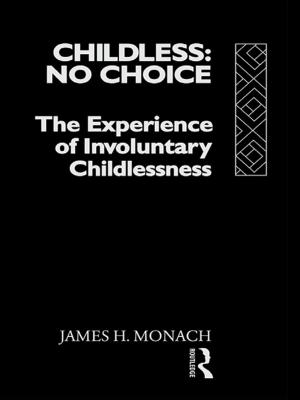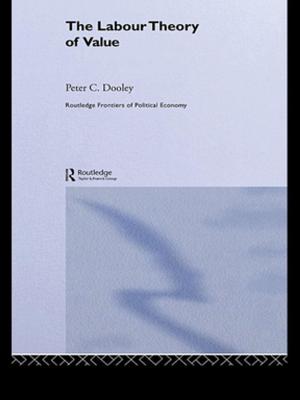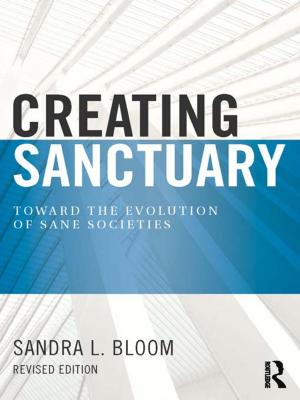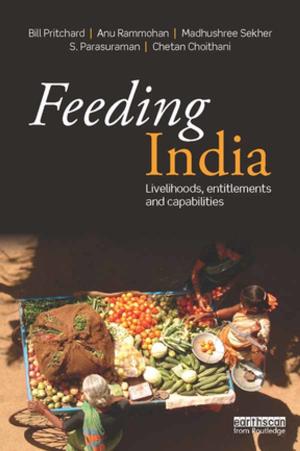Evaluating Family Programs
Current Issues in Theory and Policy
Nonfiction, Social & Cultural Studies, Political Science, Politics, Social Services & Welfare, Social Science, Sociology| Author: | ISBN: | 9781351311069 | |
| Publisher: | Taylor and Francis | Publication: | October 24, 2017 |
| Imprint: | Routledge | Language: | English |
| Author: | |
| ISBN: | 9781351311069 |
| Publisher: | Taylor and Francis |
| Publication: | October 24, 2017 |
| Imprint: | Routledge |
| Language: | English |
The diverse composition of American families and changing ways of raising our children have become subjects of intense scrutiny by researchers and policymakers in recent years. Shifting demographics and work patterns, growing numbers of women in the work force, teenage pregnancy, single-parent families, and the deinstitutionalization of the elderly, disabled, and mentally ill--all these trends have significantly affected family life. Evaluating Family Programs effectively bridges the gap between researchers and practitioners in order to bring practical, understandable advice to providers of family programs and to program funders and policymakers.
Heather B. Weiss and Francine H. Jacobs have collected in this volume works which move outside the traditional approaches of their disciplines to create new models for delivering and evaluating services. This sets a mood of genuine inquiry and excitement about successful aspects of programs while maintaining openness about the limitations of both research and practice. By expanding the research model, this work is an attempt to understand reciprocal influences of extended family, culture, community, and social institutions. It urges those who advocate program accountability to understand that not all types of evaluations are appropriate for all programs, and it notes that limitations in current evaluation technologies make it difficult to evaluate outcomes.
Evaluating Family Programs reminds the reader that in order to develop sound family policy we must look at children and families in context. Beacuse policymakers, program administrators, and informed citizens have come to rely more upon the results of evaluation research, we must improve our methods while not losing sight of its limitations. It is a thought-provoking contribution to the efforts of those who seek to support the American family with compassion, understanding, and realism.
The diverse composition of American families and changing ways of raising our children have become subjects of intense scrutiny by researchers and policymakers in recent years. Shifting demographics and work patterns, growing numbers of women in the work force, teenage pregnancy, single-parent families, and the deinstitutionalization of the elderly, disabled, and mentally ill--all these trends have significantly affected family life. Evaluating Family Programs effectively bridges the gap between researchers and practitioners in order to bring practical, understandable advice to providers of family programs and to program funders and policymakers.
Heather B. Weiss and Francine H. Jacobs have collected in this volume works which move outside the traditional approaches of their disciplines to create new models for delivering and evaluating services. This sets a mood of genuine inquiry and excitement about successful aspects of programs while maintaining openness about the limitations of both research and practice. By expanding the research model, this work is an attempt to understand reciprocal influences of extended family, culture, community, and social institutions. It urges those who advocate program accountability to understand that not all types of evaluations are appropriate for all programs, and it notes that limitations in current evaluation technologies make it difficult to evaluate outcomes.
Evaluating Family Programs reminds the reader that in order to develop sound family policy we must look at children and families in context. Beacuse policymakers, program administrators, and informed citizens have come to rely more upon the results of evaluation research, we must improve our methods while not losing sight of its limitations. It is a thought-provoking contribution to the efforts of those who seek to support the American family with compassion, understanding, and realism.
